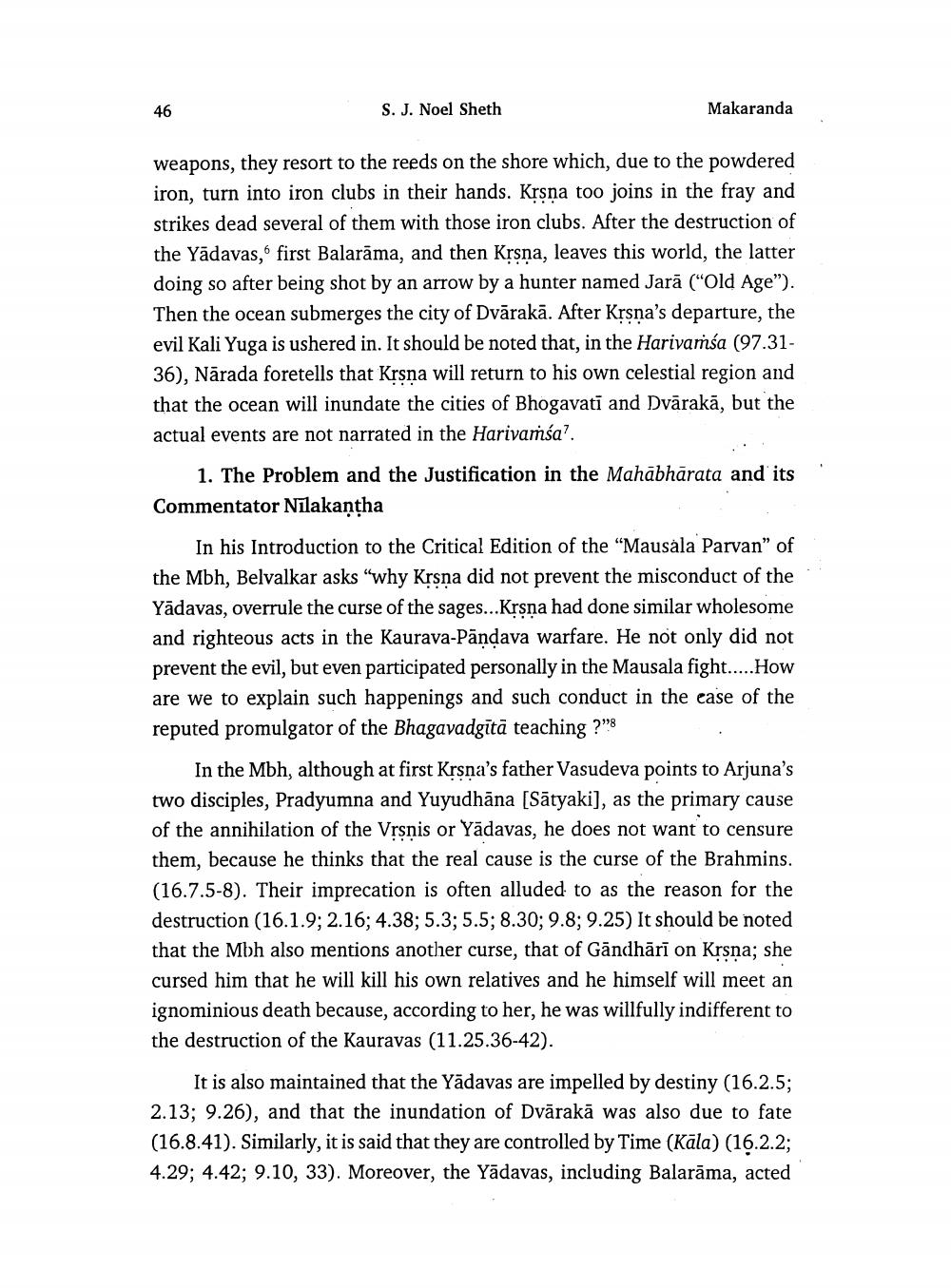________________
46
S. J. Noel Sheth
Makaranda
weapons, they resort to the reeds on the shore which, due to the powdered iron, turn into iron clubs in their hands. Kṛṣṇa too joins in the fray and strikes dead several of them with those iron clubs. After the destruction of the Yadavas, first Balarama, and then Krsna, leaves this world, the latter doing so after being shot by an arrow by a hunter named Jară ("Old Age"). Then the ocean submerges the city of Dvaraka. After Krsna's departure, the evil Kali Yuga is ushered in. It should be noted that, in the Harivamsa (97.3136), Narada foretells that Krsna will return to his own celestial region and that the ocean will inundate the cities of Bhogavati and Dvārakā, but the actual events are not narrated in the Harivamsa'.
1. The Problem and the Justification in the Mahabharata and its Commentator Nilakantha
In his Introduction to the Critical Edition of the "Mausala Parvan" of the Mbh, Belvalkar asks "why Kṛṣṇa did not prevent the misconduct of the Yadavas, overrule the curse of the sages...Krsna had done similar wholesome and righteous acts in the Kaurava-Päṇḍava warfare. He not only did not prevent the evil, but even participated personally in the Mausala fight.....How are we to explain such happenings and such conduct in the ease of the reputed promulgator of the Bhagavadgită teaching?"
In the Mbh, although at first Krsna's father Vasudeva points to Arjuna's two disciples, Pradyumna and Yuyudhana [Satyaki], as the primary cause of the annihilation of the Vṛṣṇis or Yadavas, he does not want to censure them, because he thinks that the real cause is the curse of the Brahmins. (16.7.5-8). Their imprecation is often alluded to as the reason for the destruction (16.1.9; 2.16; 4.38; 5.3; 5.5; 8.30; 9.8; 9.25) It should be noted that the Mbh also mentions another curse, that of Gāndhārī on Krsna; she cursed him that he will kill his own relatives and he himself will meet an ignominious death because, according to her, he was willfully indifferent to the destruction of the Kauravas (11.25.36-42).
It is also maintained that the Yadavas are impelled by destiny (16.2.5; 2.13; 9.26), and that the inundation of Dvārakā was also due to fate (16.8.41). Similarly, it is said that they are controlled by Time (Kala) (16.2.2; 4.29; 4.42; 9.10, 33). Moreover, the Yädavas, including Balarama, acted




